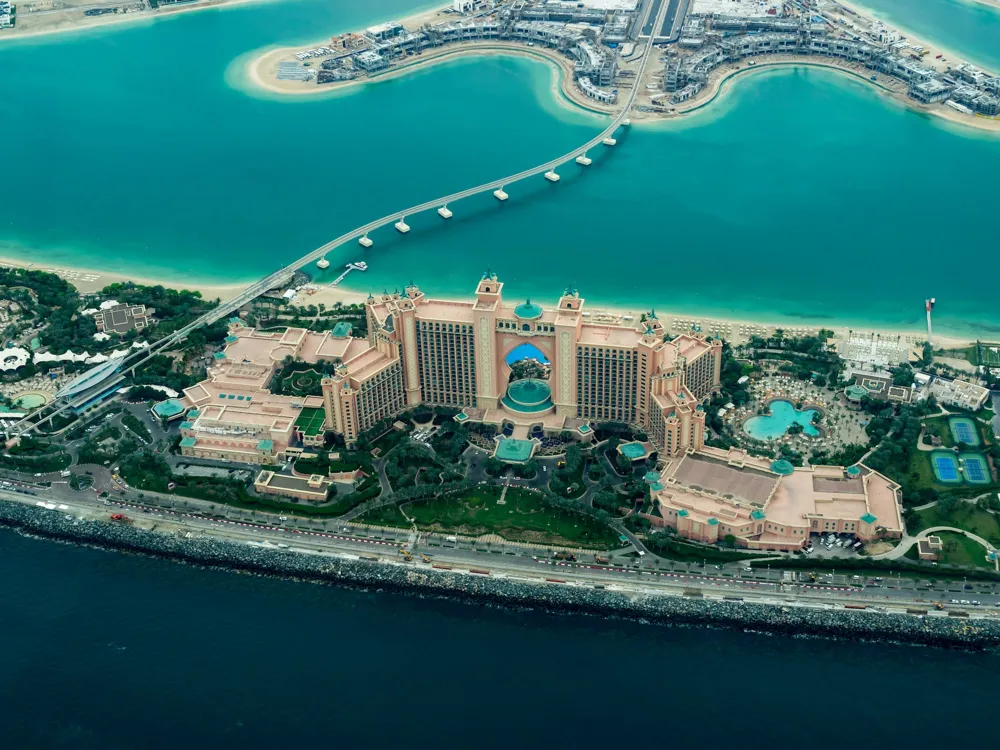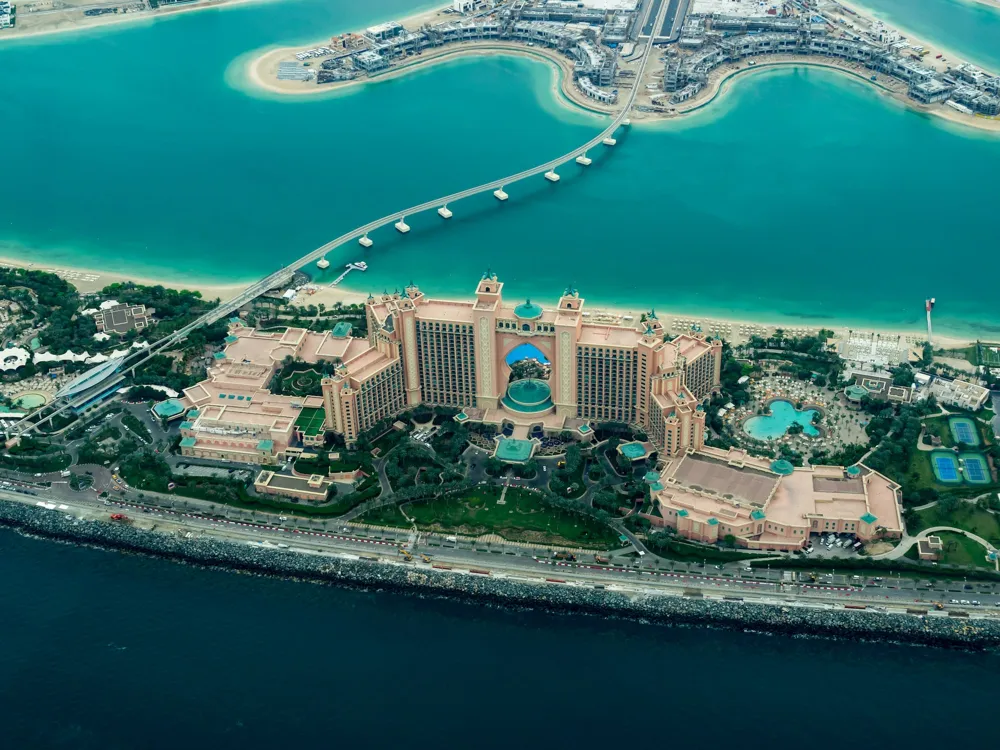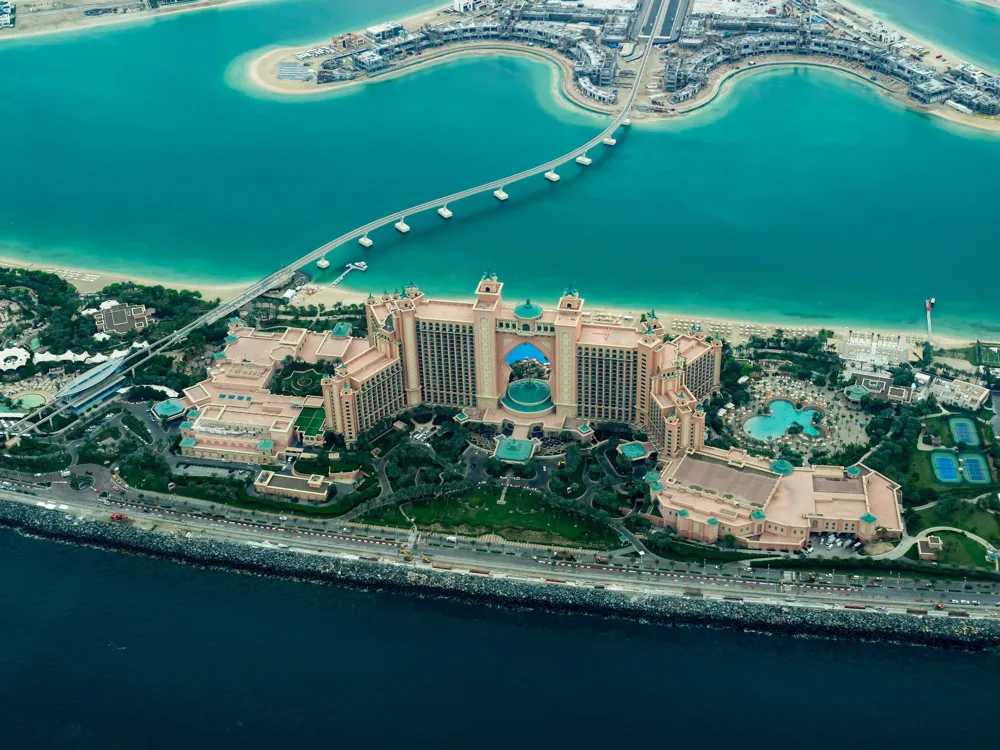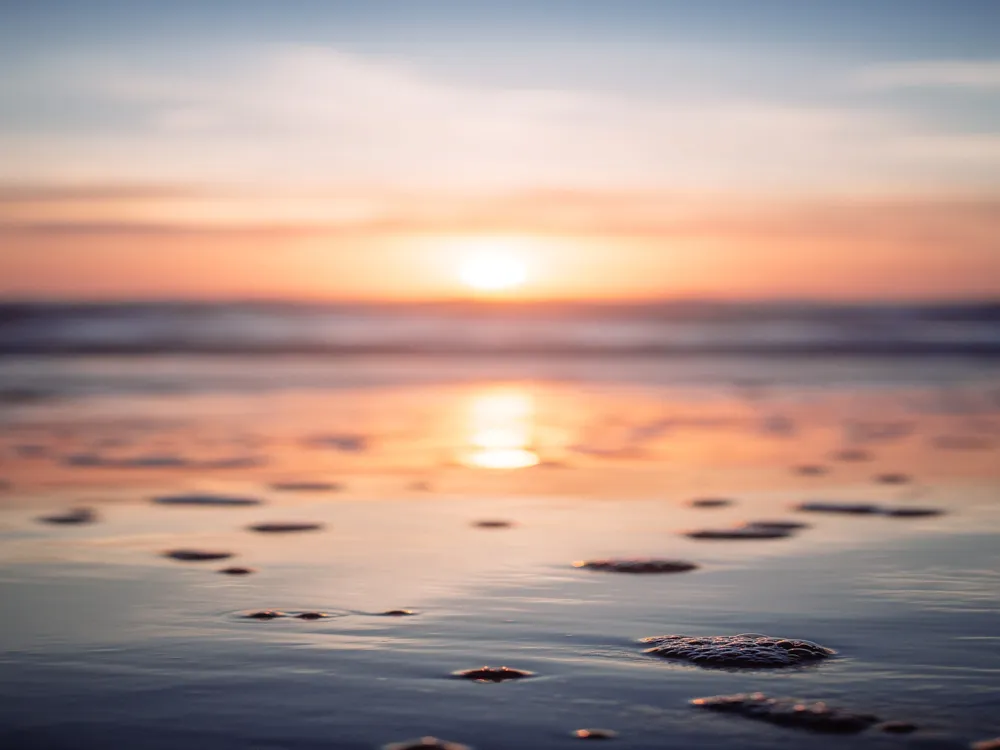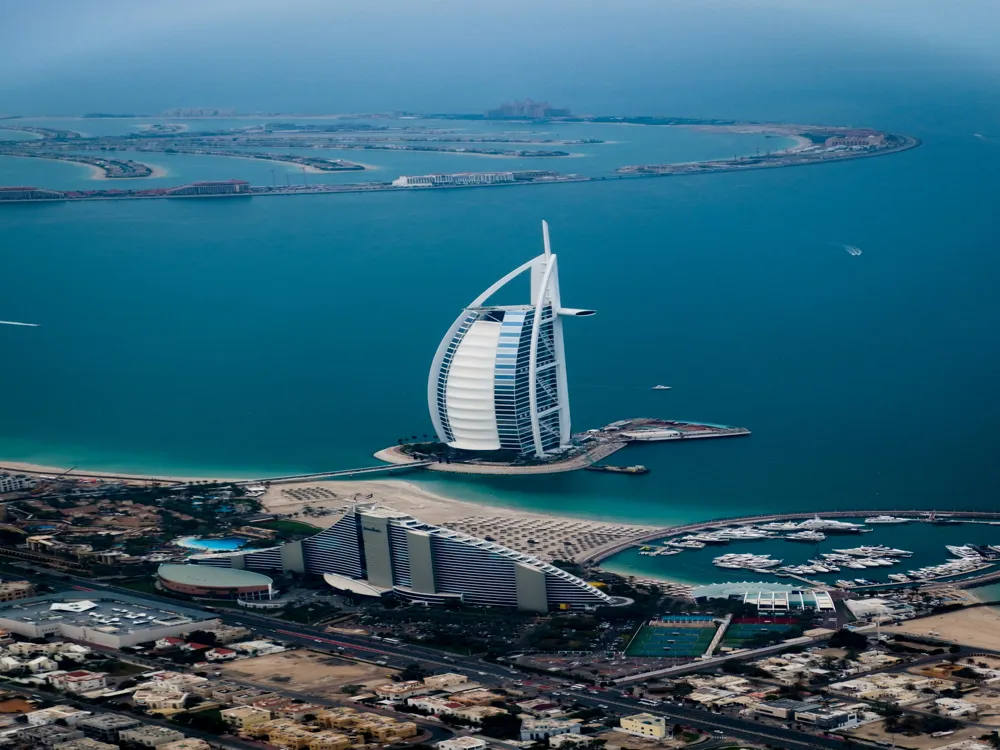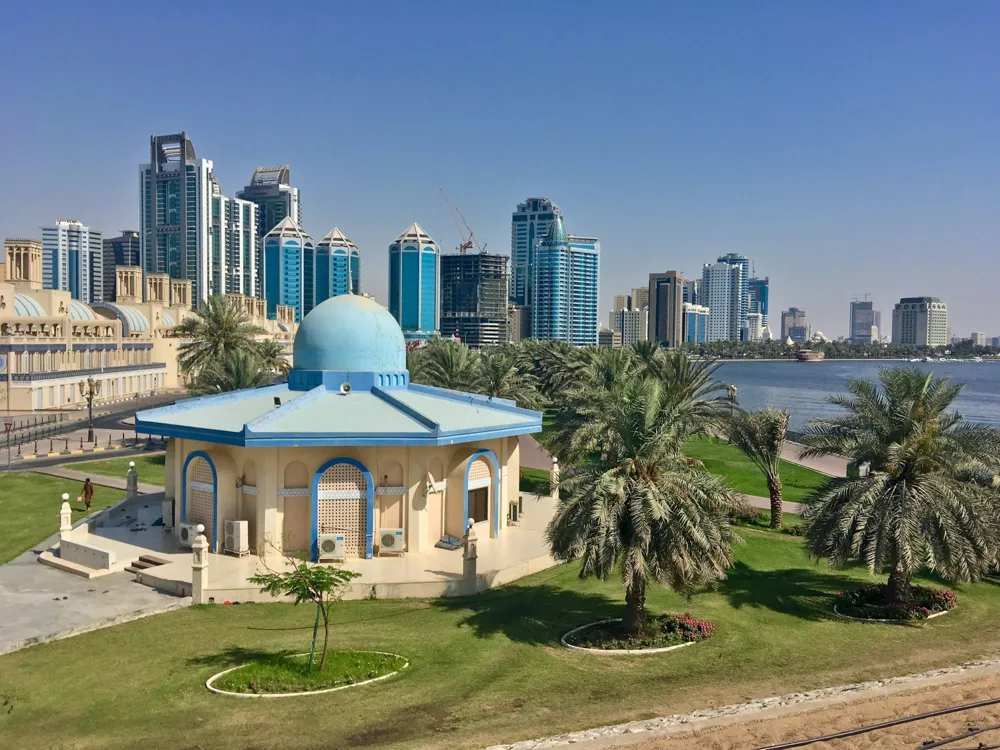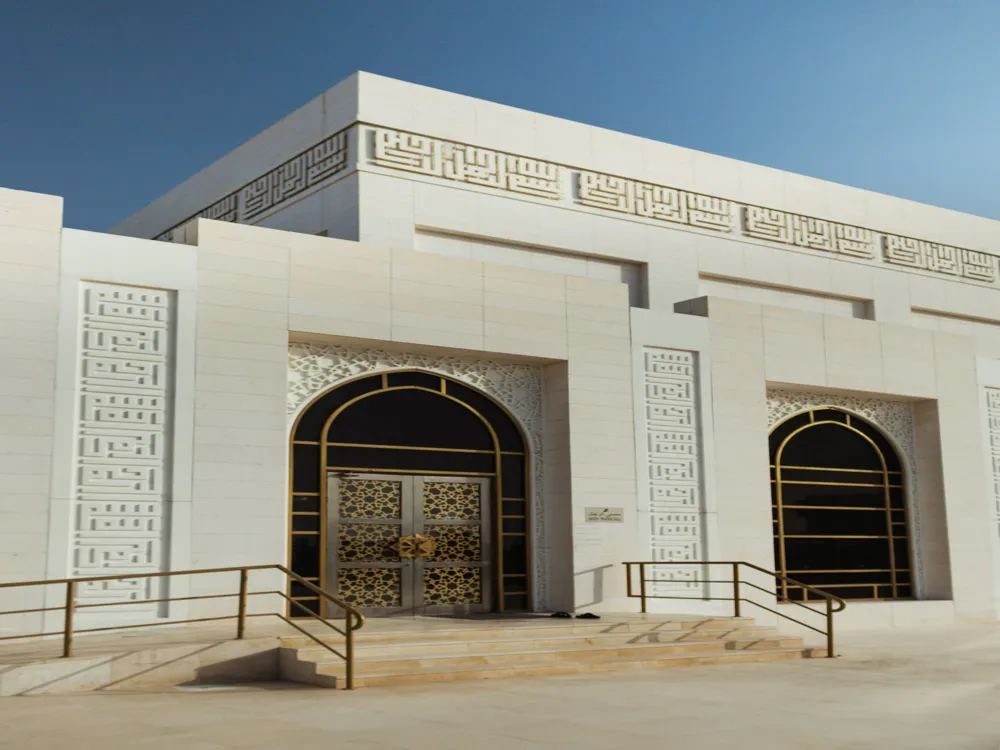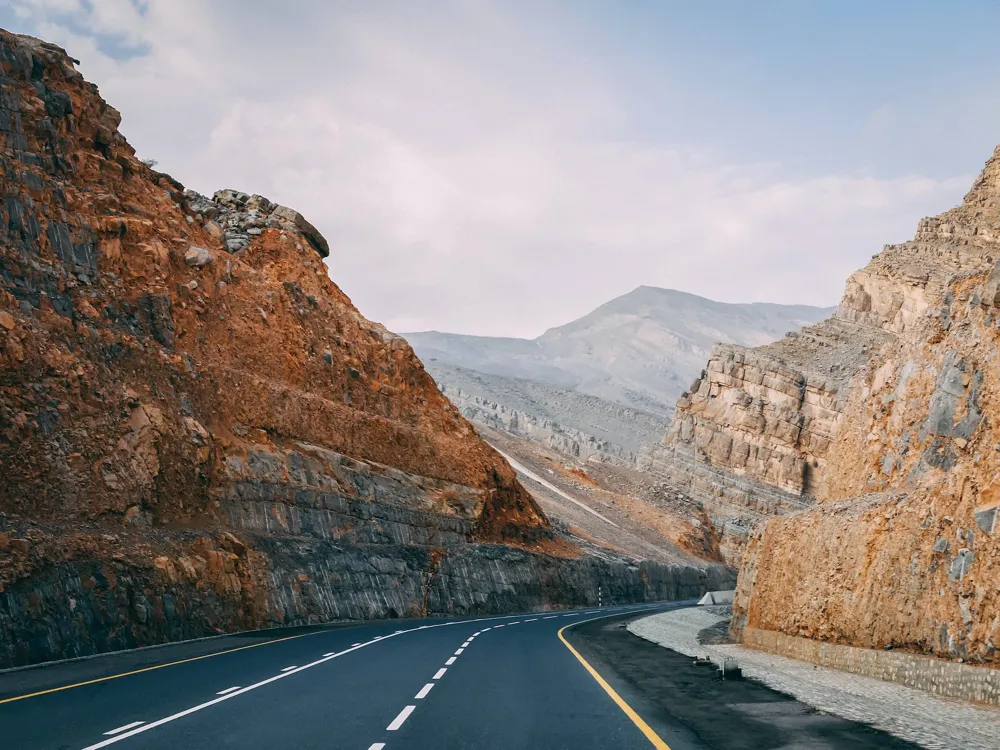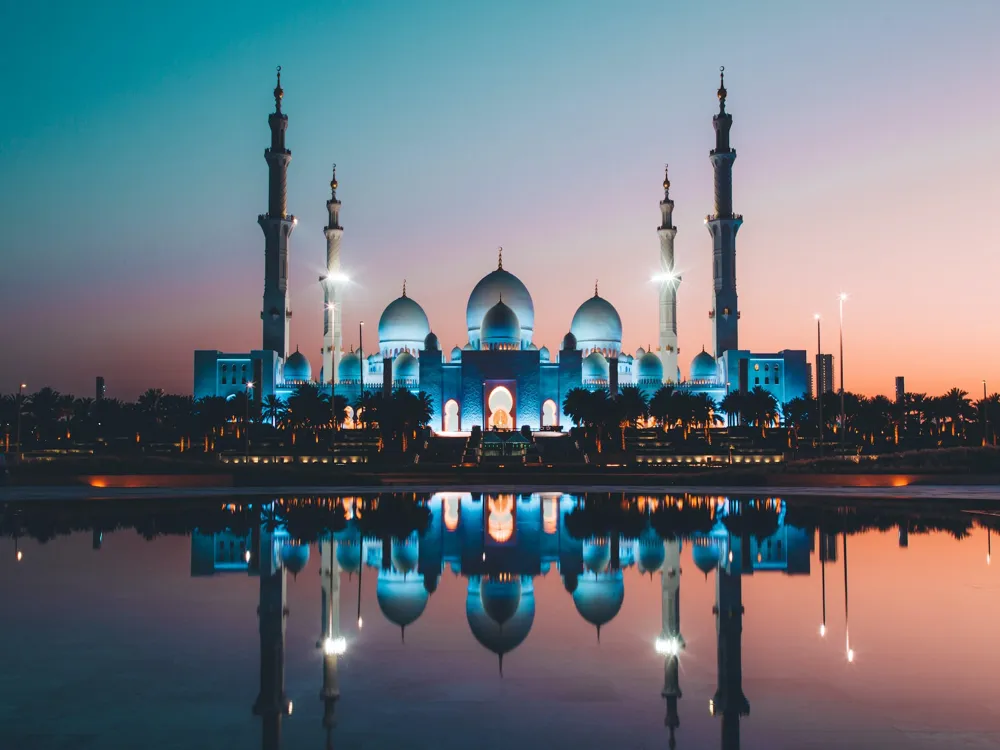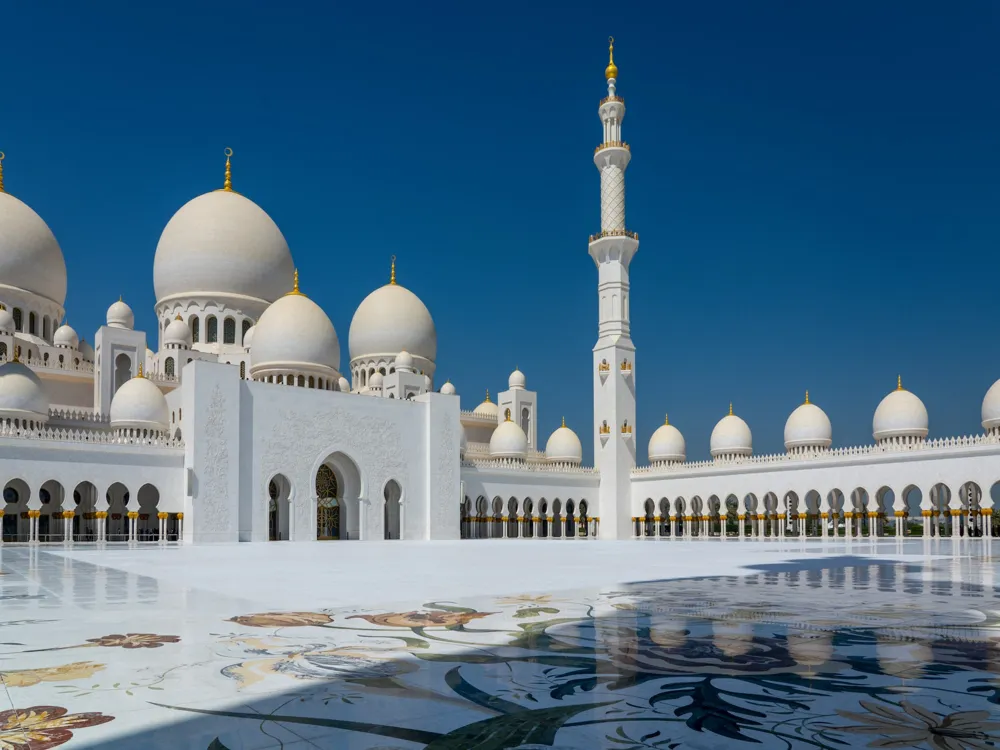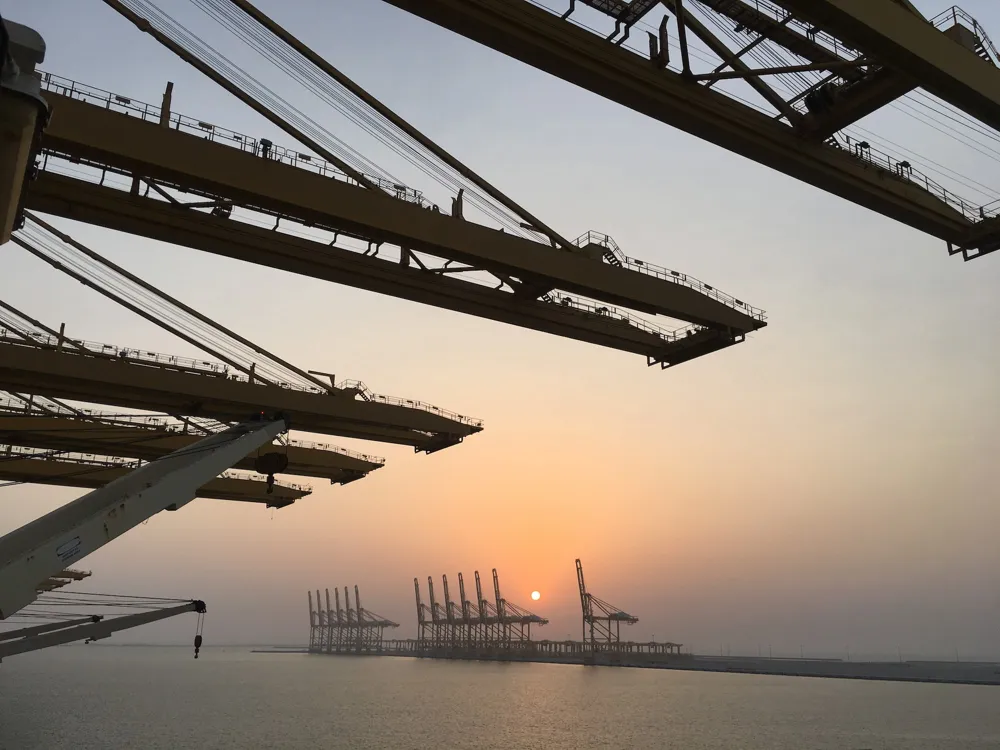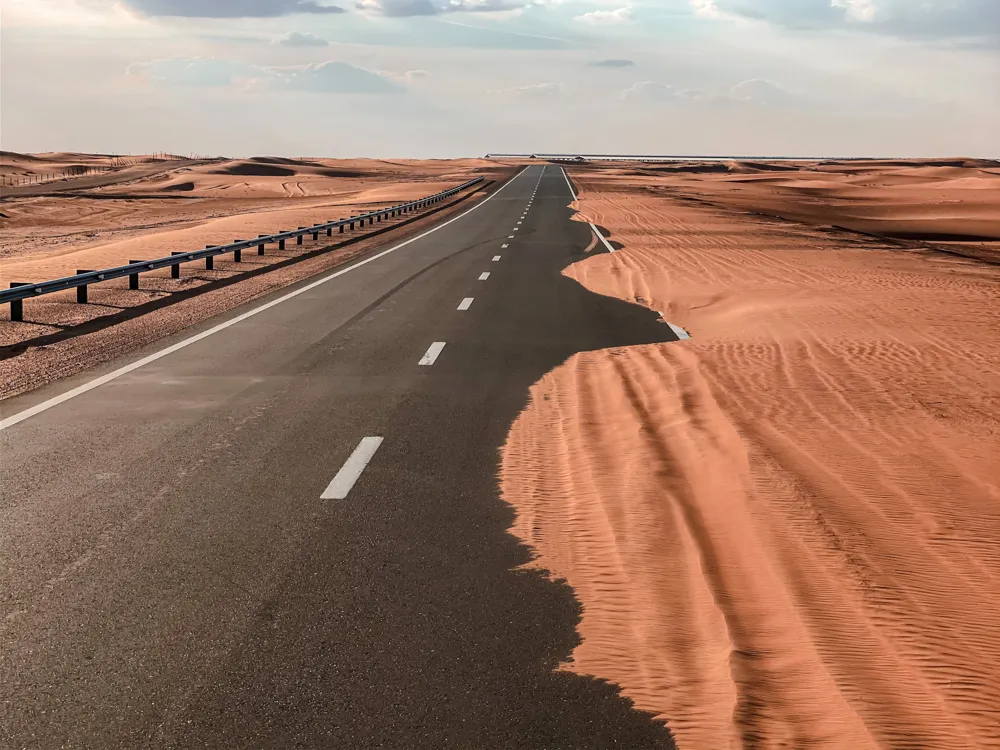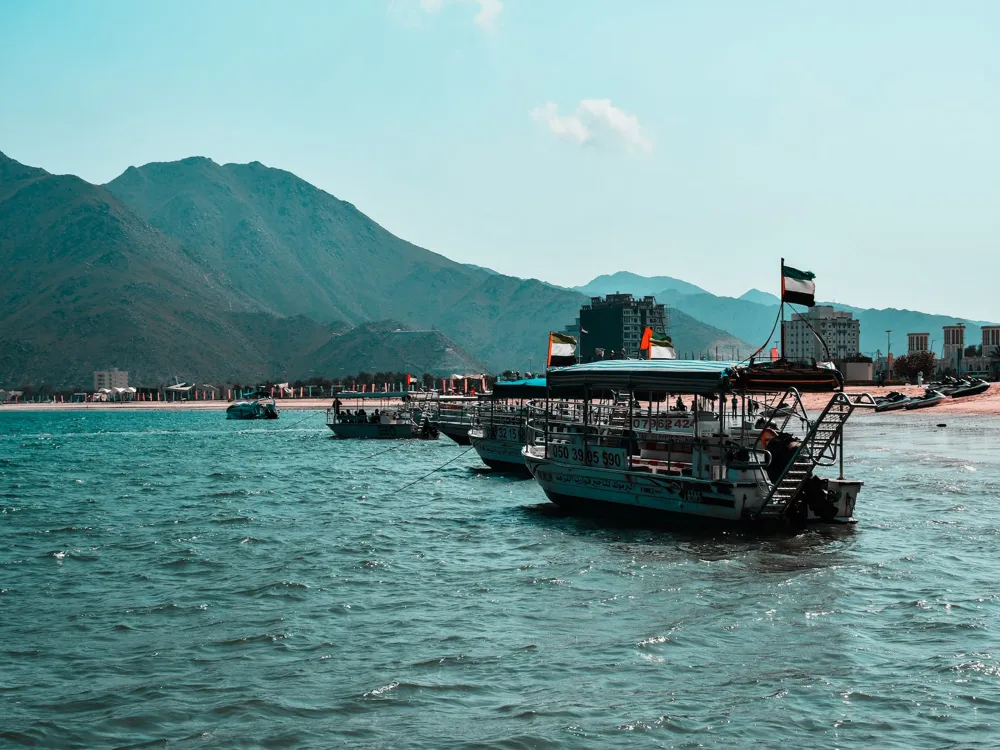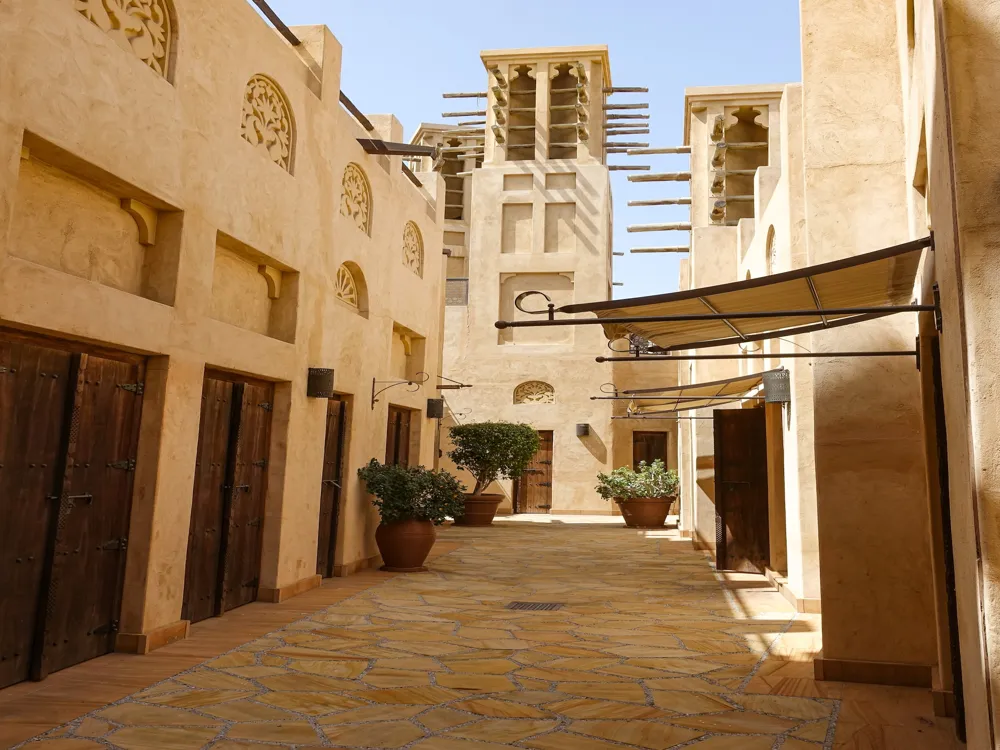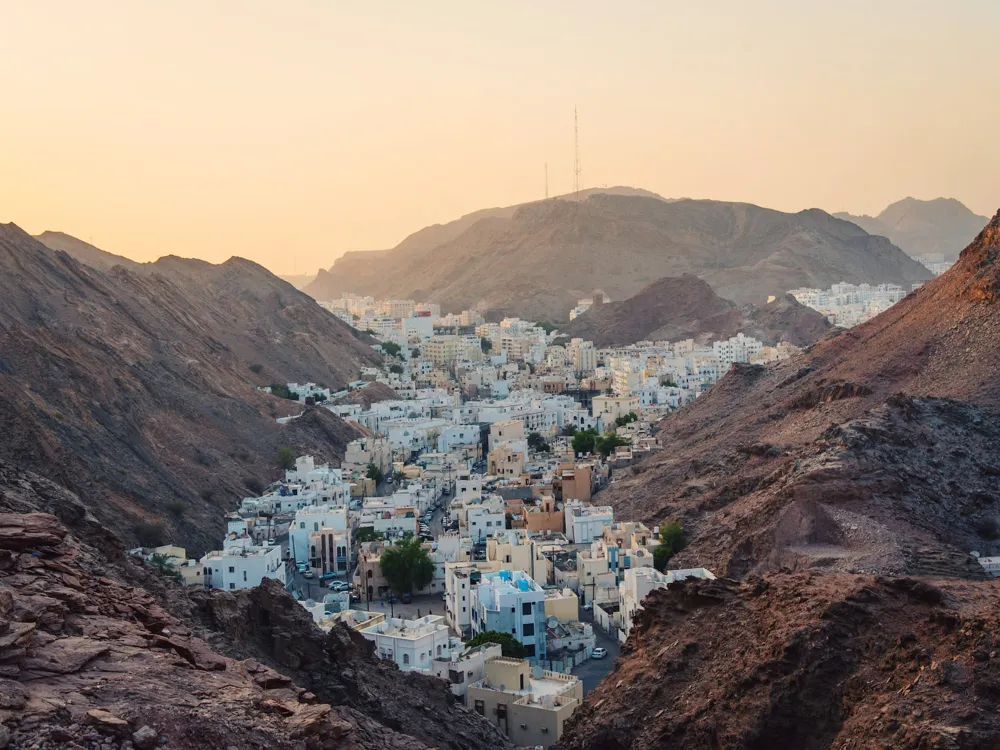Dubai, a city and emirate in the United Arab Emirates, is known for luxury shopping, ultramodern architecture, and a lively nightlife scene. Burj Khalifa, an 830m-tall tower, dominates the skyscraper-filled skyline. At its foot lies Dubai Fountain, with jets and lights choreographed to music. On artificial islands just offshore is Atlantis, The Palm, a resort with water and marine-animal parks. Dubai is a melting pot of different cultures and a symbol of futuristic developments. Dubai's transformation from a fishing village to a global real estate hub has been phenomenal. Historical districts like Al Fahidi contrast with the modern skyscrapers. The city's human-made islands, luxurious hotels, and shopping malls invite visitors from all over the world. Dubai's economy was initially built on the oil industry, but the city's Western-style model of business drives its economy today, with the main revenues now coming from tourism, aviation, real estate, and financial services. Dubai's history reaches back to 3000 BCE, but it was in the early 20th century that it began its transformation. The discovery of oil in the 1960s fueled rapid development. Since then, Dubai has diversified its economy, focusing on tourism, trade, aviation, and real estate. The city is a business and cultural hub, attracting expats and entrepreneurs. Its strategic location makes it a significant global transport hub for passengers and cargo. With a population comprising over 200 nationalities, Dubai is one of the most cosmopolitan cities in the world. This diversity influences the social fabric, cuisine, music, and fashion of the city. Dubai prides itself on its hospitality and friendliness to foreigners, making it a welcoming place for tourists and expatriates alike. Dubai is not just about towering skyscrapers and shopping; it's also a pioneer in technological innovation. From blockchain technology in government services to the planned Hyperloop transportation system, Dubai is at the forefront of smart city initiatives. It aims to be a world leader in innovation, shaping the future of technology. Dubai's architecture is a blend of traditional Arab influences and modern design. The city is renowned for its skyscrapers, particularly the Burj Khalifa, the world's tallest building. This architectural marvel is a symbol of Dubai's rapid development and ambition. However, Dubai's architecture is not just about tall buildings; it also includes innovative designs and sustainable practices. The city's architecture reflects its ambitious spirit. Iconic structures like the Burj Al Arab, shaped like a sail, and the Palm Jumeirah, an artificial archipelago, showcase Dubai's innovative approach to construction. These structures not only serve as luxury accommodations but also as symbols of the city's engineering prowess. From the world’s tallest building, the Burj Khalifa, to the expansive Dubai Mall and the picturesque Dubai Marina, the city is adorned with some of the most extraordinary architectural feats. Each building tells a story of innovation and luxury, setting new benchmarks in architectural design. Dubai is not just about opulence; it is also moving towards sustainable development. The city incorporates green building standards and is home to some of the most sustainable buildings in the world, like the Dubai International Financial Centre. These practices show Dubai's commitment to a sustainable future. Despite its focus on futuristic architecture, Dubai has not forgotten its roots. Traditional Arabian designs are evident in many buildings, blending the old with the new. This fusion creates a unique architectural landscape that respects heritage while embracing modernity. The best time to visit Dubai is from November to March when the weather is pleasant. This period also coincides with several major events and festivals. Dubai has strict laws that reflect its Islamic traditions. Tourists should be aware of these laws and respect local customs, such as dressing modestly and avoiding public displays of affection. Dubai has a modern and efficient public transportation system, including metros, buses, and taxis. Renting a car is also a viable option for exploring the city. From luxury hotels to budget accommodations, Dubai offers a range of lodging options. Booking in advance is recommended, especially during peak tourist seasons. Dubai is accessible by air, sea, and land. The Dubai International Airport is one of the busiest in the world and is the primary point of entry for international visitors. The city is also a cruise hub and has excellent road connectivity with neighboring countries. For those traveling by air, various airlines offer flights to Dubai from major cities around the world. The city's location makes it a popular stopover for long-haul flights. Once in Dubai, the city's advanced infrastructure makes it easy to travel around, with taxis, metros, and buses providing convenient transportation options.Overview of Dubai
The Rise of a City: Dubai's History and Economic Development
Cultural Melting Pot: Demographics and Society
A Hub of Innovation: Dubai's Smart City Initiatives
Architecture of Dubai
Engineering Marvels: Notable Buildings and Structures
Sustainable Practices in Dubai's Architecture
Traditional Influences in Modern Design
Tips When Visiting Dubai
Best Time to Visit
Understanding Local Laws and Customs
Transportation Options
Accommodation Choices
How To Reach Dubai
The Third Line
Dubai
₹ 17,999 onwards
View dubai Packages
Weather :
Tags : Art Gallery
Timings : 10:00 AM - 7:00 PM, Closed on Friday
Time Required : 1 - 2 hours
Entry Fee : Free
Planning a Trip? Ask Your Question
Dubai Travel Packages
View All Packages For Dubai
Top Hotel Collections for Dubai

Private Pool

Luxury Hotels

5-Star Hotels

Pet Friendly
Top Hotels Near Dubai
Other Top Ranking Places In Dubai
View All Places To Visit In dubai
View dubai Packages
Weather :
Tags : Art Gallery
Timings : 10:00 AM - 7:00 PM, Closed on Friday
Time Required : 1 - 2 hours
Entry Fee : Free
Planning a Trip? Ask Your Question
Dubai Travel Packages
View All Packages For Dubai
Top Hotel Collections for Dubai

Private Pool

Luxury Hotels

5-Star Hotels

Pet Friendly







